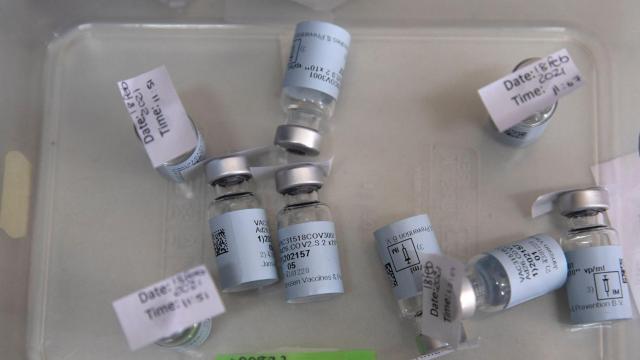A cluster of people who came down with symptoms possibly linked to covid-19 vaccines likely actually experienced a brief bout of anxiety, researchers with the U.S. Centres for Disease Control and Prevention say.
In early April, several reports emerged that people in at least five different vaccination sites in the U.S. experienced almost immediate symptoms after vaccination, all in different states. These symptoms predominantly included fainting, as well as dizziness, lightheadedness, and rapid breathing. The incidents, which all involved people vaccinated with the Johnson & Johnson one-dose vaccine, led to the temporary shutdown of several sites, and both local health officials and the CDC pledged to look into the matter.
Ultimately, CDC officials looked at 64 cases documented across five vaccination sites between April 7-9 and interviewed providers who were present on-site at the time. They also looked at real-world safety data collected through the Vaccine Adverse Event Reporting System.
Despite some people visiting the hospital afterward and the incidents shutting down four of these sites, none of the symptoms were deemed to be serious in severity, and most patients felt better within 15 minutes. 17 people experienced fainting, while more than half felt lightheaded and dizzy and about a third experienced nausea and/or vomiting. Thirteen patients also told staff members beforehand that they had fainted in the past due to a fear of needles or vaccines.
The results of the CDC’s investigation were published Friday in its Morbidity and Mortality Weekly Report (MMWR).
Fainting and similar short-term symptoms are well-known to sometimes happen after vaccination. And there doesn’t seem to have been anything found in the CDC’s investigation of these cases or in the safety data that points to any other cause of these symptoms besides anxiety. In their report, the authors noted that these incidents happened before the recent reports of a rare blood clotting condition possibly linked to the Johnson & Johnson vaccine became public (after a brief pause, the use of the vaccine was restarted, now with a warning about the risk).
Because the J&J shot is a single dose, it’s possible that people who are more likely to be anxious about vaccines would also opt for it more often, which could then account for the higher incidence of vaccine-related fainting associated with the shot. It’s also possible that the early media coverage of the first incidents on April 7 (or just seeing someone faint in person) only raised people’s anxiety further. That said, one of the first members of the public to take the Pfizer vaccine last December — a nurse in Tennessee — famously fainted right after. At the time, the nurse pointed out that she had a history of fainting.
As the authors put it, “the stress of an ongoing pandemic might also increase anxiety surrounding covid-19 vaccination.”
Of course, fainting and these other symptoms can still be a scary experience, no matter the cause. And just because anxiety may be the root cause of these cases, that doesn’t mean there isn’t a real risk worth caring about. For that reason, the authors recommend that people are routinely monitored after vaccination for at least 15 minutes — not just for the possibility of fainting but other rare symptoms that could appear post-vaccination, such as a strong allergic reaction.
